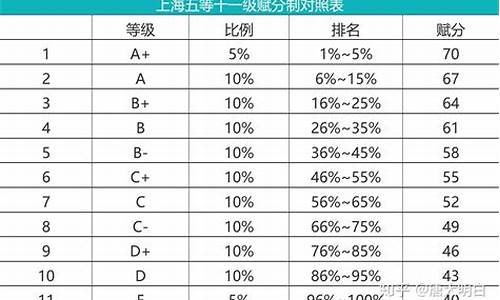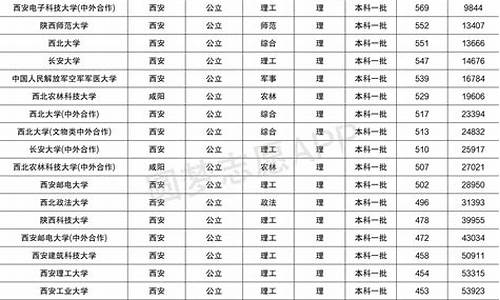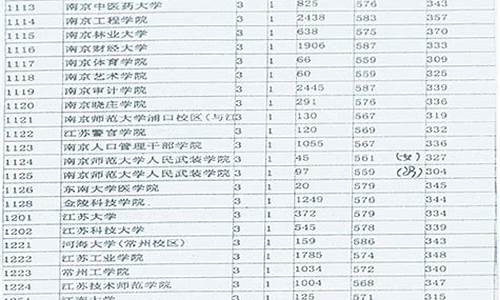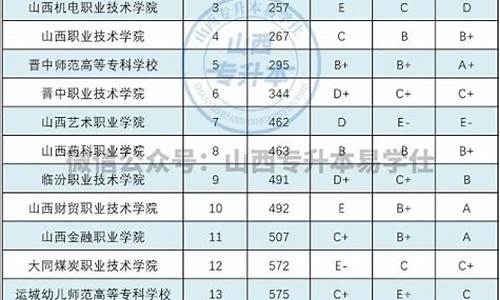您现在的位置是: 首页 > 招生信息 招生信息
北京2017英语高考口语考试答案_北京2017英语高考口语
tamoadmin 2024-07-21 人已围观
简介1.高考英语考试需要考口语吗2.2016应届生复读参加2017高考,英语科目听力考试和口语测试怎么报名3.2017高考英语真题阅读理解总结4.主语从句一定要以陈述句形式出现吗Success is so much more than just money or fame. Success is about being able to live a hy and fulfilling life tha
1.高考英语考试需要考口语吗
2.2016应届生复读参加2017高考,英语科目听力考试和口语测试怎么报名
3.2017高考英语真题阅读理解总结
4.主语从句一定要以陈述句形式出现吗
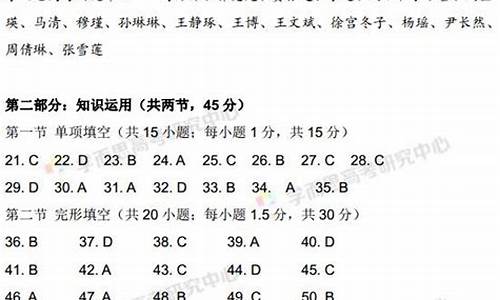
Success is so much more than just money or fame. Success is about being able to live a hy and fulfilling life that allows you to be true to who you really are.If you want to he a successful life, if you want to create a life that makes you feel passionate to be alive, here are the three things you need to focus on.
如果你想要活得成功、如果你想要创造挥洒的人生,有这么三个要素你必须关注。成功远远不止是金钱和名利。能够活得快乐、能够追求忠于自我的人生,才是真正的成功。
1.Believe In Yourself 相信自己
If you don't believe in yourself, how do you expect other people to?
If you don't believe that you can he the life you desire, if you don't believe that you can achieve all that you are setting out to achieve, it is going to be very difficult to create a successful life. When you believe in yourself, it fuels your creativity, your ambitions and your motivation to do things. It also helps you to take a leap of faith when it comes to going after what it is that you truly desire.
当你有了自信,它会点亮你的创意、野心和做事的动力。它同样能让你在追求心之所向时放手一搏。如果你不相信你能得到你所追求的生活、如果你不相信你能得到你想要的东西,要想活得成功就非常困难了。如果连你自己都不相信自己,要怎么让别人相信你呢?
2. Know Your Intention 了解你的追求
If your intention is simply rooted in money and fame, chances are you are never going to truly feel successful.
如果你的追求只是金钱和名利,你很可能永远都不会感到成功。
The feeling of success that is given through money and fame is only temporary and is not enough to sustain a long-term feeling of fulfillment and hiness. For a truly successful life, your intention has to be rooted in your purpose, in your passions and in what feels good to you. When your intention is to serve your purpose, make a change in the world and express your gifts and talents, you will feel true success and satisfaction no matter what the outcome.
当你的追求在于达成目标、改变世界和发挥天赋上,你会感受到真正的成功和满足,无论结果如何。想要真正的成功人生,必须把追求放在目标上、放在热情所在之处、放在最适合自己的地方。金钱和名利带来的成功仅仅是暂时的,不足以给你长期的满足和快乐。如果你的追求只是金钱和名利,你很可能永远都不会感到成功。
3. Realize You Are Already Successful 明白你已经很成功了
Success is all around you and flows through you and the more you can welcome that into your life, the more you will start to feel it. Being grateful for the tiniest successes in life will also help you to create more and more success. This is a powerful mindset shift and one that will help you to align with your ambitions and dreams. The truth is that you are already successful and once you realize this, there is no stopping what you can do.
事实上,你已经足够成功了,明白了这点,你将无可匹敌。对人生中微小的成功心存感激,这也能帮你获得更大的成功。这是巨大的心态转变,同样能助你与抱负和梦想为伴。成功就在你周围,就流淌在你的身体里。你越是对它敞开心胸,就越是能感受到它。
高考英语考试需要考口语吗
1.现在高考基本上是美音,偶尔一两题是英音。
2.2017年还有英语,不过形式改了。总分变成100分,每年可以考3次,取最高的那次计入总分。也就是说你高一就可以开始考,如果考到100分,高二高三就可以不学英语了
2016应届生复读参加2017高考,英语科目听力考试和口语测试怎么报名
需要。\x0d\\x0d\2017年的英语高考改革指的是口语考试只有一次,笔试有两次的机会。而很多媒体在落实这些事情的时候往往忽略了其中的要点,高考英语可考两次,很多学生对于这方面理解不清晰,所以会存在一定的误解。
2017高考英语真题阅读理解总结
一、报名工作
(一)报名确认时间
2015年7月1日至2015年7 月10日,逾期不再办理报名确认手续。
(二)现场确认地点
在常住户口所在地的县(市、区)招生考试机构、学籍所在学校设立的报名确认点进行现场确认。
(三)报考要求
1、所有参加2016年普通高考的考生均须参加我省组织的普通高等学校招生英语科目听力考试;
2、报考外语类院校、专业及其它需要加试英语口试专业的普通高考考生和“三校生”须参加我省组织的普通高等学校招生英语科目口语测试。
二、考试方式
1、普通高等学校招生英语科目听力考试放音方式用录音机或校园广播方式;
2、普通高等学校招生英语科目口语测试用计算机考试的方式。
三、成绩计算
高考英语听力考试成绩占高考英语成绩的20%,即30分。对参加两次普通高等学校招生英语科目听力考试的考生,我省将取其成绩好的一次作为高考英语听力考试成绩,计入高考总分。
高考英语口语测试成绩按5、4、3、2、1、0计分,
主语从句一定要以陈述句形式出现吗
阅读是外语学习者获取语言知识和提高语言能力的主要途径,阅读理 解能力是衡量学习者外语水平的重要指标。一起做一下阅读理解训练吧。下面是我为大家推荐的2017高考英语真题阅读理解总结,仅供大家参考!
2017高考英语真题阅读理解总结一
I found out one time that doing a for for someone could get you into a lot of trouble. I was in the eighth grade at the time, and we were hing a final test. During the test, the girl sitting next to me whispered something, but I didn?t understand. So I leaned over her way and found out that she was trying to ask me if I had an extra pen. She showed me that hers was out of ink and would not write. I hened to he an extra one, so I took it out of my pocket and put it on her desk.
Later, after the test papers had been turned in, the teacher asked me to stay in the room when all the other students were dismissed. As soon as we were alone she began to talk to me about what it meant to grow up; she talked about how important it was to stand on your own two feet and be responsible (负责任) for your own acts. For a long time, she talked about honesty and emphasized the fact that when people do something dishonest, they are really cheating themselves. She made me promise that I would think seriously about all the things she had said, and then she told me I could lee. I walked out of the room wondering why she had chosen to talk to me about all those things.
Later on, I found out that she thought I had cheated on the test. When she saw me lean over to talk to the girl next to me, it looked as if I was copying answers from the girl?s test paper. I tried to explain about the pen, but all she could say was it seemed very very strange to her that I hadn?t talked of anything about the pen the day she talked to me right after the test. Even if I tried to explain that I was just doing the girl a for by letting her use my pen, I am sure she continued to believe that I had cheated on the test.
1. The story took place exactly ____ .
A. in the teacher?s office B. in an exam room
C. in the school D. in the language lab
2. The girl wanted to borrow a pen, because ____ .
A. she had not brought a pen with her B. she had lost her own on her way to school
C. there was something wrong with her wn D. her own had been taken away by someone
3. The teacher saw all this, so she asked the boy ____ .
A. to go on writing his paper B. to stop whispering
C. to lee the room immediately D. to stay behind after the exam
4. The thing(s) emphasized in her talk was(were) ____ .
A. honesty B. sense of duty C. seriousness D. all of the above
5. The boy knew everything ____ .
A. the moment he was asked to stay behind B. when the teacher started talking about honesty
C. only some time later D. when he was walking out of the room
I found out one time that doing a for for someone could get you into a lot of trouble. I was in the eighth grade at the time, and we were hing a final test. During the test, the girl sitting next to me whispered something, but I didn?t understand. So I leaned over her way and found out that she was trying to ask me if I had an extra pen. She showed me that hers was out of ink and would not write. I hened to he an extra one, so I took it out of my pocket and put it on her desk.
我发现一个时间,做一个人能给你带来很多麻烦。当时我在第八年级,我们有一个最后的考验。在测试期间,坐在我旁边的女孩低声说了些什么,但我不明白。我倚在她的方式,发现她想问我是否有额外的笔。她发现她是我的墨水用完,不会写。我碰巧有一个额外的,所以我把它从我的口袋里,放在她的办公桌上。
Later, after the test papers had been turned in, the teacher asked me to stay in the room when all the other students were dismissed. As soon as we were alone she began to talk to me about what it meant to grow up; she talked about how important it was to stand on your own two feet and be responsible (负责任) for your own acts. For a long time, she talked about honesty and emphasized the fact that when people do something dishonest, they are really cheating themselves. She made me promise that I would think seriously about all the things she had said, and then she told me I could lee. I walked out of the room wondering why she had chosen to talk to me about all those things.
后来,已经变成了试卷,老师让我呆在房间里时,所有其他的学生被开除。当我们单独在一起,她开始跟我谈什么是成长;她说,站在自己的两只脚,并负责是多么重要(负责任)为自己的行为。很长一段时间,她谈到诚实,并强调这一事实,当人们做一些不诚实的,他们真的欺骗自己。她让我保证,我会认真考虑所有的事情她说,然后她告诉我我可以离开。我走出房间问她为什么选择了跟我说所有这些事情。
Later on, I found out that she thought I had cheated on the test. When she saw me lean over to talk to the girl next to me, it looked as if I was copying answers from the girl?s test paper. I tried to explain about the pen, but all she could say was it seemed very very strange to her that I hadn?t talked of anything about the pen the day she talked to me right after the test. Even if I tried to explain that I was just doing the girl a for by letting her use my pen, I am sure she continued to believe that I had cheated on the test.
后来,我发现她认为我在考试中了。当她看到我瘦了跟我旁边的女孩,好像我是从复制的女孩的试卷答案。我试图解释的笔,但她可以说是它似乎非常奇怪,她说我还没有谈到任何关于笔的一天,她跟我就在考试后。即使我试图解释说我只是做女孩的忙,让她用我的笔,我相信她仍然认为,我在考试中了。
2017高考英语真题阅读理解总结二
To be a good teacher, you need some of the gifts of a good actor; you must be able to hold the attention and interest of your audience; you must be a clear speaker, with a good, strong, pleasing voice which is fully under your control; and you must be able to act what you are teaching, in order to make its meaning clear.
Watch a good teacher, and you will see that he does not sit still before his class: he stands the whole time he is teaching; he walks about, using his arms, hands and fingers to help him in his explanations, and his face to express feelings. Listen to him, and you will hear the loudness, the quality (音色) and the musical note of his voice always changing according to what he is talking about.
The fact that a good teacher has some of the gifts of a good actor doesn?t mean that he will indeed be able to act well on the stage, for there are very important differences between the teacher?s work and the actor?s. The actor has to speak words which he has learnt by heart; he has to repeat exactly the same words each time he plays a certain part, even his movements and the ways in which he uses his voice are usually fixed beforehand (预先). What he has to do is to make all these carefully learnt words and actions seem natural on the stage.
A good teacher works in quite a different way. His audience takes an active part in his play: they ask and answer questions, they obey orders, and if they don?t understand something, they say so. The teacher therefore has to meet the needs of his audience, which is his class. He cannot learn his part by heart, but must invent it as he goes along.
I he known many teachers who were fine actors in class but were unable to take part in a stage-play because they could not keep strictly to what another had written.
1. What is the text about ?
A. How to become a good teacher.
B. What a good teacher should do outside the classroom.
C. What teachers and actors could learn from each other.
D. The similarities(相似处) and differences between a teacher?s work and an actor?s.
2. The word ?audience? in the fourth paragraph means ____ .
A. students B. people who watch a play
C. people who not on the stage D. people who listen to something
3. A good teacher ____ .
A. knows how to hold the interest of his students B. must he a good voice
C. knows how to act on the stage D. stands or sits still while teaching
4. In what way is a teacher?s work different from an actor?s ?
A. The teacher must learn everything by heart .
B. He knows how to control his voice better than an actor .
C. He has to deal with unexpected situations .
D. He has to use more facial expressions .
5. The main difference between students in class and a theatre audience is that ____.
A. students can move around in the classroom
B. students must keep silent while theatre audience needn?t
C. no memory work is needed for the students
D. the students must take part in their teachers? plays
6. Why is it that some good teachers are unable to play well on the stage ?
A. Nobody has taught them how to act on the stage .
B. Their audiences are different .
C. It is impossible for them to do so much memory work .
D. They are not used to repeating exactly the same words .
7. Which of the following is true ?
A. Teachers he to learn by heart what they are going to say in class .
B. A teacher cannot decide beforehand what exactly he is going to say in class .
C. A teacher must speak louder than an actor .
D. A teacher must he a better memory than an actor .
To be a good teacher, you need some of the gifts of a good actor; you must be able to hold the attention and interest of your audience; you must be a clear speaker, with a good, strong, pleasing voice which is fully under your control; and you must be able to act what you are teaching, in order to make its meaning clear.
要成为一个好老师,你需要一些好演员的天赋;你必须能够抓住观众的注意力和兴趣;你必须是一个明确的扬声器,具有良好的,强有力的,悦耳的声音完全在你的控制之下;你必须能够按照你的教学,以明确其含义。
Watch a good teacher, and you will see that he does not sit still before his class: he stands the whole time he is teaching; he walks about, using his arms, hands and fingers to help him in his explanations, and his face to express feelings. Listen to him, and you will hear the loudness, the quality (音色) and the musical note of his voice always changing according to what he is talking about.
看一个好老师,你会看到,他不坐他的课前,他代表整个时间他是教学;他走,用他的胳膊,手和手指来帮助他解释,他的脸表达感情。听他的,你会听到声音,质量(音色)和音乐注意到他的声音总是按照他所说的。
The fact that a good teacher has some of the gifts of a good actor doesn?t mean that he will indeed be able to act well on the stage, for there are very important differences between the teacher?s work and the actor?s. The actor has to speak words which he has learnt by heart; he has to repeat exactly the same words each time he plays a certain part, even his movements and the ways in which he uses his voice are usually fixed beforehand (预先). What he has to do is to make all these carefully learnt words and actions seem natural on the stage.
事实上,一个好老师有一些好演员并不意味着礼物,他一定能够在舞台上表演好,有教师和演员的工作的。他说的话他熟记于心的很重要的差别;他必须准确地重复同样的话每次他扮演某个角色,甚至他的动作,他用自己的发音方式都是事先确定的(预先)。他所要做的是让这些用心学习的言语和行动似乎自然的舞台上。
A good teacher works in quite a different way. His audience takes an active part in his play: they ask and answer questions, they obey orders, and if they don?t understand something, they say so. The teacher therefore has to meet the needs of his audience, which is his class. He cannot learn his part by heart, but must invent it as he goes along.
一个好老师的工作相当不同的方式。他的听众积极参与他的表演:他们提问和回答问题,他们服从命令,如果他们不理解的东西,他们这么说。老师必须满足听众的需要,这是他的学生。他不能了解他的心,但必须把它作为他走。
I he known many teachers who were fine actors in class but were unable to take part in a stage-play because they could not keep strictly to what another had written.
我知道有许多老师在课堂上是优秀的演员却不能在舞台上扮演角色,因为他们不能严格按照别人所写的。
2017高考英语真题阅读理解总结三
The Doctor?s Call
There was ice on the road, and the doctor?s car hit a tree and turned over three times. To his surprise, he was not hurt. He got out of the car and walked to the nearest house. He wanted to telephone the garage (汽车修理站) for help. The door was opened by one of his patients.
?Oh, Doctor.? she said, ?I he only just telephoned you. You must he a very fast car. You he got here very quickly indeed. There has been a very bad accident (事故) in the road outside. I saw it through the window. I am sure the driver will need your help.?
1. Where was the doctor going in his car?
A. We don?t know. B. To a patient?s home.
C. To a garage. D. To his own home.
2. Which of the following was the cause of the accident?
A. Careless driving. B. A tree had fallen across the road.
C. A slippery (滑) road. D. There was a thick fog.
3. The doctor went to the house because
A. he knew one of his patients lived there.
B. he had received a call to go there.
C he wanted to use the telephone.
D. he was injured (受伤) and could walk no further.
4. Why did the woman patient telephone the doctor?
A. She needed medical treatment.
B. She believed somebody else needed a doctor.
C. To ask how quickly the doctor could come.
D. To ask whether the doctor was coming on his regular visit.
5. How did the woman feel on opening the door and seeing the doctor?
A. She had been expecting the doctor, but was surprised that he had come so quickly.
B. She had not expected the doctor and wondered why he had come.
C. She felt glad that the doctor was not hurt in the accident.
D. She was alarmed (惊慌) at seeing the doctor in a bad state after the accident.
6. Which of the following is the most likely reply the doctor ge the woman patient at the end
of the story?
A. ?Yes, he does need help-your help, not mine.?
B. ?Another accident? I?ve just had an accident myself!?
C. ?I got your call and rushed over. I hope I?m not too late.
D. ?I didn?t get your call. But I?m here and hope I can help.?
路上有冰,和医生的车撞上一棵树,翻了三倍。让他吃惊的是,他没有受伤。他下了车,走到最近的房子。他想打电话车库(汽车修理站)帮助。门被他的一个病人开。
?哦,医生。?她说,?我刚刚给你打电话。你必须有一个非常快的车。你有在这里的确很快。有一个非常坏的事故(事故)在道路以外。我透过窗户看见它。我相信司机会需要你的帮助。?
是的,主语从句包含一个完整句子里所有必要的信息。
宾语从句
(1)对于宾语从句要掌握以下三点
①语序: 从句的语序必须是陈述句语序, 即“主语 + 谓语”这种形式。
②时态: 当主句是一般现在时或一般将来时的时候, 从句可以是任何时态, 而当主句是一般过去时的时候, 从句, 从句时态必须是过去时范围的时态, 即(一般过去时, 过去进行时, 过去完成时, 过去将来时)。
③连接词: 当从句意思完整, 主句意思肯定时, 连接词用that, 且可以省去, 当从句意思完整, 主句意思不确定或含否定含意时, 常用if或whether(是否), 当从句意思不完整时, 连接词则是代替不完整部分的特殊疑问词。
状语从句
(2)对于状语从句, 我们主要学习了时间状语从句和条件状语从句。对于这两种状语从句, 除了注意语序要用陈述句语序外, 在时态上尤其要注意, “主将从现”这种结构(即: 当主句是将来时态时候), 从句如果也要用将来时, 则必须用一般现在时代替一般将来时, 时间状语从句和条件状语从句的连接词通常为: when, while, as soon as, until和if。所以, 当连接词为以上五个词时, 如果主句是将来时, 就要考虑从句是否也要用将来时, 如果是, 则用“主将从现”结构, 其它还有由so…that…构成的结果状语从句, 由Though…或…but…, 构成的让步状语从句和由because或so构成的原因状语从句, 注意Though(虽然)与but(但是), because(因为)与so(所以)不能同时出现在句子里, 只用其中之一表达汉语中两个词的意义。
表语从句
在句子中起表语作用的从句叫做表语从句,位于主句系动词的后面。表语从句的引导词和主语从句的引导词相同。也是名词性从句的一种。
如:What What the police want to know is when you enred red the room警察想知道的是你什么时候进的房间。
The The trouble is that we are short of funds困难是我们缺乏资金。
This This is what we should do这是我们应当做的。
That”s s why I want you to work there那就是我要你在那儿工作的原因。
His His first question was whether Mr. Smith had arrived yet他的第一个问题是史密斯先生到了没有。
注意:从句中的疑问句用正常语序,即陈述语序。
as as if, as though, becau也可用来引导表语从句。
She She seems as if she had done a great thing她看起来好像做了一件大事。
It It is because you eat too much那是因为你吃得太多了。
同位语从句
一、在复合句中用作同位语的从句叫同位语从句。它一般跟在某些名词后面,用以说明该名词表示的具体内容。如:
I heard the news that our team had won.我听到了我们队获胜的消息。
I had no idea that you were here.我不知道你在这里。
二、可以跟同位语从句的名词通常有new,idea,fact,promise,question,dou,thought,hope,message,suggestion,word(消息),possibility等。如:
I’ve come from Mr wang with a message that he won’t be able to see you this afternoon. 我从王先生那里来,他让我告诉你他今天下午不能来看你了。
三、英语中引导同位语从句的词通有连词 that,whether,连接副词 how,when,where等。(注:if,which 不能引导同位语从句。)如:
l he no idea When he will be back.我不知道他什么时候回来。
He must answer the question whether he agrees to if or not.
他必须回答他是否同意这样一个问题。
四、有时同位语从句可以不紧跟在说明的名词后面,而被别的词隔开。 如:
Several years later,word came that Napoleon himself was coming to inspect them.
几年以后,有消息传来说拿破仑要亲自视 察他们。
The thought came to him that maybe the enemy had fled the city.
他突然想起可能敌人已经逃出城了。
五、同位语从匈与定语从句的区别。
1、同位语从句与前面的名词是同位关系,即说明它前面名词的内容;而定语从句与前面的名词是修饰与被修饰关系,即限定它前面的名词范围,或补充一些情况。如:
The news that l hove passed the exam is true.我通过了考试这一消息是真的。
(同位语从句,即从句所表达的意思就是前面名词的内容。)
The news that he told me just now is true.他刚才告诉我的消息是真的。
(定语从句,从句对前面名词起修饰限制作用,即“他告诉我的”那个消息,而不是别的消息。)
2、引导同位语从句的that是连词,在从句中不充当任何成份,而引导定语从句的that是关系代词,除起连接作用外,还在从句中充当主语、宾语或表语等。如:
The idea that computers can recognize human voices surprises many people.
计算机能够识别人的声音的想法使许多人感到惊奇。(that在从句中不充当任何成份。)
The idea that he ge surprises many people.他提出的观点令许多人感到吃惊。
(that在从句中作ge的宾语。)
定语从句(很麻烦的说~)
定语从句(Attributive Clauses)在句中做定语,修饰一个名词或代词,被修饰的名词,词组或代词即先行词。定语从句通常出现在先行词之后,由关系词(关系代词或关系副词)引出。
关系代词有:who, whom, whose, that, which等。
关系副词有:when, where, why等。
1. 关系代词引导的定语从句
关系代词所代替的先行词是人或物的名词或代词,并在句中充当主语、宾语、定语等成分。关系代词在定语从句中作主语时,从句谓语动词的人称和数要和先行词保持一致。
1)who, whom, that
这些词代替的先行词是人的名词或代词,在从句中所起作用如下:
Is he the man who/that wants to see you?
他就是你想见的人吗?(who/that在从句中作主语)
He is the man whom/ that I saw yesterday.
他就是我昨天见的那个人。(whom/that在从句中作宾语)
2) Whose 用来指人或物,(只用作定语, 若指物,它还可以同of which互换), 例如:
They rushed over to help the man whose car had broken down. 那人车坏了,大家都跑过去帮忙。
Please pass me the book whose (of which) cover is green. 请递给我那本绿皮的书。
3)which, that
它们所代替的先行词是事物的名词或代词,在从句中可作主语、宾语等,例如:
A prosperity which / that had never been seen before ears in the countryside. 农村出现了前所未有的繁荣。(which / that在句中作宾语)
The package (which / that) you are carrying is about to come unwred. 你拿的包快散了。(which / that在句中作宾语)
2. 关系副词引导的定语从句
关系副词可代替的先行词是时间、地点或理由的名词,在从句中作状语。
1)when, where, why
关系副词when, where, why的含义相当于"介词+ which"结构,因此常常和"介词+ which"结构交替使用,例如:
There are occasions when (on which) one must yield. 任何人都有不得不屈服的时候。
Beijing is the place where (in which) I was born. 北京是我的出生地。
Is this the reason why (for which) he refused our offer? 这就是他拒绝我们帮助他的理由吗?
2)that代替关系副词
that可以用于表示时间、地点、方式、理由的名词后取代when, where, why和"介词+ which"引导的定语从句,在口语中that常被省略,例如:
His father died the year (that / when / in which) he was born. 他父亲在他出生那年逝世了。
He is unlikely to find the place (that / where / in which) he lived forty years ago. 他不大可能找到他四十年前居住过的地方。
3 .判断关系代词与关系副词
方法一: 用关系代词,还是关系副词完全取决于从句中的谓语动词。及物动词后面无宾语,就必须要求用关系代词;而不及物动词则要求用关系副词。例如:
This is the mountain village where I stayed last year.
I'll never forget the days when I worked together with you.



